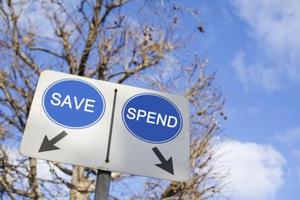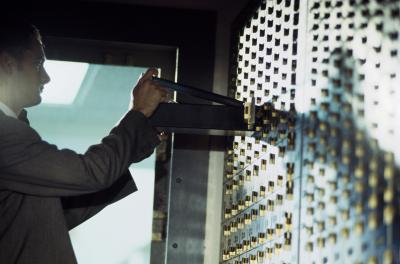How to Make the Most of a Budget Worksheet
Budgeting worksheets can be powerful money management tools, helping you keep track of spending, master financial software, and save more for the future.
6 Ways to Practice Efficient Money Management
Getting organized in the home is the first step in dealing with personal finances. This means setting up a desk or dedicated space for the time you’ll be spending with household taxes, bills, banking and investments. Keep the paperwork separated in files and stored in a safe place away from traffic and bustle — a small filing cabinet or even a sturdy banker’s box will work. For stuff that you just can’t lose — passports, insurance policies, mortgage deeds, birth certificates, Social Security cards — use a small safe.
Advantages of Apartment Management Software
Convenience and Compatibility Managing rental units means you handle two sets of numbers for your income, expenses and tax deductions. Instead of using multiple and incompatible software programs, a single apartment management package can bring together your rental business and individual financial information. Apps for…
Top 5 Money Mistakes People Make
Managing money is a challenge whether you earn minimum wage or are considered comfortably well off. While making mistakes is considered a learning opportunity by some, it pays to make as few mistakes as possible when it comes to your financial status. Errors in judgment…
Contingency Planning & Budgeting
No budget is complete without a plan to deal with the unexpected, which means you need to build up an emergency fund. It may take a little bit of discipline while you’re in savings mode, but the relief you experience from knowing that you have…
Short-Term Budgeting Tips
Getting your household spending under control requires having a spending plan in place — a budget — and most important, following the plan as closely as you can.
How Financial Management Is Crucial for Budgeting Success
Whether you like to admit it or not, money plays a significant part in many of life’s daily activities. When you have systems in place to manage your finances, whether that’s using cash envelopes, recording your spending each time you make a purchase, or using automated software, having a plan makes it easier to monitor your budget — and stick to it. Much of what we do in a given day revolves around finances,” says Jesse Bunse, a financial planner with Triune Financial Partners, LLC in Overland Park, KS. “Whether going to the store or simply getting in the car and going to work, we are making financial decisions. Wise money management helps us to make these decisions with greater ease, thus allowing more time to do all the other activities of our daily lives.”
How to Budget for Emergencies
There isn’t a magic amount that applies to everyone when it comes to how much you should set aside. “I recommend three to six months of living expenses,” advises Baehr. “More if your job or health situation is not stable.” For example, if you work as a freelancer or do primarily contract work, you need a larger emergency fund than if you’re the picture of perfect health and have a stable job at a strong company. Of course, to know how much several months’ worth of living expenses actually is, you need to track your spending.
Tricks to Win the Fight Against Debt
No matter how you acquired the debt, you can’t go back and change the past. But, you can implement a plan to win the debt reduction war and start spending your money the way you want, rather than scraping by to pay off your old creditors. It may be a long fight, but with a plan you can start by winning the small battles that will help you turn the tide and declare your financial freedom.
Why Is Financial Planning Important?
Without a financial plan, it’s hard to know whether you’re sinking or swimming when it comes to your finances. If you aren’t tracking your cash flow, your debt could be growing without you even realizing it. “If you are digging yourself further in the hole every month, nothing else matters,” says Brian Frederick, a certified financial planner practicing in Scottsdale, Arizona. “Having negative cash flow is analogous to having a leaky boat — it’s hard to go forward when you’re busy bailing water to make sure you don’t sink.”









